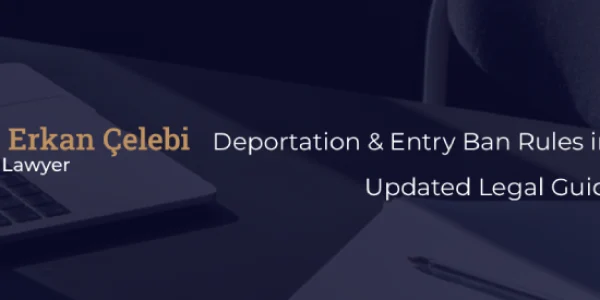Fraud in Turkish Law
How is Fraud Defined in Turkish Law?
The crime of fraud in Turkish law is defined as deceiving another person through deceptive acts and profiting from these acts at the expense of the deceived party or of a third party. By this definition, the 3 elements of fraud are:
- Deceptive acts
- Profiting from the said acts
- Loss of the deceived party or a third party
What is the penalty for fraud in Turkey?
While many fraud cases end with prison sentences between 1-5 years, depending on the circumstances and methods of committing the crime, involved parties, the number of perpetrators and the type of victims, the penalty for fraud can go up to 20 years of prison sentence.
What Separates Fraud from Civil Dispute?
The most debated aspect of fraud in Turkish law is its distinction from a legal dispute. Many complaints about fraud in Turkey are dismissed by prosecutors as “merely a legal dispute” and therefore the subject of a civil court. The line between fraud and legal dispute can sometimes be so thin that even criminal lawyers cannot predict whether the prosecutor will file a criminal fraud case or dismiss the act as a legal dispute.
This is where the first element of fraud, which is a deceptive act, comes into play. In the absence of a deceptive act, even if the committing party unjustifiably profited at the expense of a victim, it would be considered a legal dispute and therefore not a crime.
According to the higher court decisions in Turkey, fraud can be distinguished from a legal dispute by systematic acts of deceit. In this respect, not honoring an agreement by collecting the price but not delivering the goods, the property or the services, is by itself merely a legal dispute and therefore not a crime.
What is an Example of Fraud in Turkish Law?
For example, collecting the agreed price of an apartment from the other party and not delivering the ownership of the said apartment, by itself, is not a crime but a legal dispute. On the other hand, if the perpetrator provided a forged certificate of ownership to convince the buyer to pay the price, it could be considered fraud in Turkish law. Likewise, if the perpetrator promised to sell the same apartment to several people just to collect money repeatedly, then it could be considered as a systematic act of deceit and therefore the crime of fraud.
Whether or not an act can be considered fraud in Turkish law depends on which lengths the perpetrator has gone to profit unjustifiably. This is why each case needs to be evaluated on its own and then determined whether it is fraud or a legal dispute.
What to Do if You are a Victim of Fraud in Turkey?
Victims of fraud have two legal recourses. The first legal recourse available to a victim of fraud is to file a criminal complaint before the prosecutor’s office. The court of jurisdiction is usually the court where the crime took place.
When filing a criminal complaint for fraud, it is crucial to highlight the aspects of the case that distinguish the perpetrator’s acts from a legal dispute. In the event of failure of this distinction, the complaint may be dismissed as a legal dispute. This is why the victims of fraud are highly recommended to consult with a criminal lawyer who is experienced in fraud cases.
How to File a Lawsuit Against Fraud in Turkey?
Victims of fraud have also a second legal recourse which is filing a lawsuit for monetary and non-monetary damages. This lawsuit is not contingent upon the defendant being found guilty. On the contrary, the defendant may be acquitted and can still be ordered to pay damages in a lawsuit. On the other hand, if the defendant is found guilty by a criminal court, then the civil court is bound by law to order the defendant to pay damages to the victim of fraud, albeit the burden of proving the extent of those damages lies on the victim/plaintiff.
If the prosecutor or the criminal court rules that the dispute in question is not a criminal one but a legal dispute, in order to recover the financial losses that occurred as a result of the defendant’s acts, the victim/plaintiff may file a lawsuit for unjustified enrichment.
Antalya Lawyer and Antalya Attorney Baris Erkan Celebi and his Antalya Law Firm offer assistance to the victims of fraud for filing criminal complaints, pursuing the complaint until the perpetrator is sentenced to punishment, offering advice on how to get compensated for the financial losses the victims have suffered and then filing lawsuits for the compensation of the said losses suffered from fraud.
- Author Av. Baris Erkan Celebi
- Barış Erkan Çelebi Founder of Turkish Law Firm
How to Report a Scam in Turkey in 5 Steps? If you have fallen victim to a scam in Turkey or suspect you may have been targeted, follow these simple steps: Table of Contents 1) Make Sure It is a Scam and Not a Civil...
What to Do If You are Scammed in Turkey? Falling victim to a scam in Turkey can be distressing, especially when you’re unfamiliar with the local legal system. Understanding your rights and the necessary steps to take can offer reassurance and a pathway to resolution....
WHAT TO DO IF YOU ARE DETAINED OR ARRESTED IN TURKEY? Finding yourself detained or arrested in a foreign country can be a distressing experience. Here’s a guide on what to do if you find yourself or someone you know arrested in Turkey or detained...










